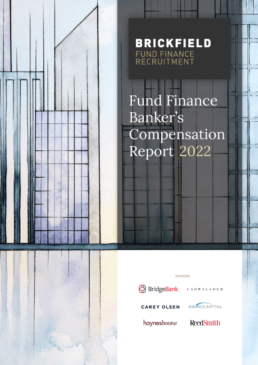Developing fund finance careers offshore: A view from the Cayman Islands

Law firms are subject to regulatory regimes and legal obligations that vary considerably from country to country, and these can have a significant effect on who can be hired and the roles they can perform.
In the Cayman Islands, The Legal Services Act, 2020 will, if passed into law, prohibit the practice of Cayman Islands law except when specific conditions set out by the legislation are met. One of the proposed conditions is that non-local lawyers looking to practice in Cayman must have at least five years of post-qualification experience under their belt.
Brickfield recently spoke with Simon Raftopoulos, a partner in Appleby’s Cayman Islands fund finance practice, who explained in more detail the proposed five-year rule and other factors that lawyers considering a move to the Caymans might want to consider.
The proposed legislation provides that any person (other than a Caymanian or the holder of a Residency and Employment Rights Certificate) who seeks to be admitted by virtue of a foreign qualification “shall have had at least five years post-qualification experience in the practice of law in another jurisdiction”, a provision known as the “five-year rule”. Such person must be “in good standing on a register or its equivalent maintained by a court or other relevant body of the relevant jurisdiction…” when hired.
While several questions remain to be clarified – hopefully by regulations yet to be issued – the intention of this provision is to reserve entry level, junior associate positions in Cayman law firms for Caymanians and Permanent Residents.
“I think the upside here is that the rule will motivate all law firms to strengthen their efforts to identify, train, support, advance and promote local talent,” Raftopoulos explains. “This move will prompt any law firms that do not already have a high school student development and scholarship program to get one in place, so that they are able to identify talent coming up to the university level and play an active role in young lawyers’ development and legal careers thereafter.”
Once hired, young Caymanian lawyers should be given every opportunity to excel, Raftopoulos adds, as competition for them will be fierce and a qualified Caymanian in this PQE range will be in very high demand. “This may lead to improved retention rates among the top firms,” he adds. “All of these things are positive not just for young lawyers, but for law firms and the jurisdiction as a whole.”
A potential challenge with the five-year rule is that it may limit the pool of talent from which law firms can fish. Raftopoulos agrees with Brickfield that the salaries of young lawyers in the Cayman Islands are likely to see an upward trend as a result of the legislation.
The Act may have an impact on smaller firms as well, Raftopoulos says. “A small firm of a handful of successful partners will have to compete with the big firms for associate talent. Specialisation in areas of practice like fund finance will be tougher to nurture and grow in a smaller environment and this may hinder the growth and development of those smaller firms in the relevant specialisations.”

“A small firm of a handful of successful partners will have to compete with the big firms for associate talent. Specialisation in areas of practice like fund finance will be tougher to nurture and grow in a smaller environment and this may hinder the growth and development of those smaller firms in the relevant specialisations.”
Simon Raftopoulos - Partner, Appleby Cayman Island
While this proposed legislation may make life for law firms a little harder in terms of sourcing new talent, the central position of offshore jurisdictions in the global financial world means that they will remain an attractive option for many as a strategic career move.
Generally, says Raftopoulos, the offshore lifestyle offers an excellent balance of engaging high quality work and experience. “UK and Commonwealth qualified lawyers looking to relocate will find that they can undertake high-value work on behalf of major clients and earn an excellent salary”, he says, adding: “Appleby is fortunate to be servicing top global financial institutions and working with extremely talented and driven people in the fund finance industry every day, so the days are pretty demanding but enjoyable.”
And there are other potential benefits that are less obvious, Raftopoulos says, for fund finance lawyers in the earlier stages of their career. Working offshore provides a wide range of opportunities that would perhaps not otherwise be as readily available when working onshore. “Young lawyers operating in the fund finance space offshore are exposed to a wide range of deals and a variety of structures on a global perspective. This provides them with a wealth of experience early on and gives in depth market insight and overview.”
While the offshore piece may be a smaller element of the overall deal, the contribution offshore lawyers make remains valuable and valued, Raftopoulos stresses. “Working with the top law firms onshore on deals between some of the biggest operators in the sector (both bank side and fund side) globally, provides offshore lawyers with the opportunity to work on an inordinately high number of the main transactions occurring in the fund finance market at any one time and equally opens up a high caliber network of individuals across the industry,” he explains.
Brickfield also believes that this proposed legislation, if enacted, will create an even more competitive market in the Cayman Islands, as firms are restricted to PQE5 and above only for overseas recruits. This makes it likely, as Raftopoulos believes, that there will be upward pressure on wages as the pool of available associate talent concentrates at the higher end of the experience field. Associate-level finance lawyers considering a move to the Cayman Islands may feel that this development puts a potential block on their aspirations, but two or three years is not a long time to wait, especially when it can be spent on career development, personal brand building and above all, acquiring technical skills and experience that are transferable offshore.
Brickfield is the only talent acquisition agency dedicated to the fund finance sector. Lawyers interested in developing their career in the Cayman Islands or other offshore jurisdictions should contact Rory Smith at rory@brickfieldrecruitment.com or by telephone on +44 7800 963 594.
More Insights.
02/25/2021
The Hiring Ides of March

09/02/2021
US mid-market: The hunt for fund finance talent is on



